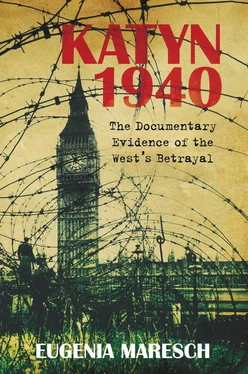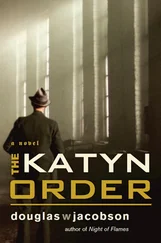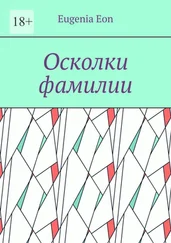However, quite clearly for the moment, there is nothing to be done. As to what circulation we give to this explosive material, I find it difficult to make up my mind. Of course it would be only honest to circulate it. But as we know (all admit) that the knowledge of this evidence cannot affect our course of action or policy, is there any advantage in exposing more individuals then necessary to the spiritual conflict that a reading of this despatch excites. [18] TNA FO 371/34577 C.6160/258/55 refers to the report from Ambassador O’Malley about the disappearance of the Polish officers. Contains remarks and comments by FO officials including Sir Alexander Cadogan.
The same sentiments were recorded in Cadogan’s private diary on Friday 18 June 1944. [19] The Diaries of Sir Alexander Cadogan O.M.1938 - 1945 , edited by David Dilks, Cassell 1971, pp 520-528.
Indeed, his advice of not exposing people to the arguments over the responsibility for the killing at Katyn and keeping all as secret as humanly possible, was accepted by the Foreign Office.
O’Malley’s despatch in its full version may not be known by the latest generations of scholars, hence the decision to include it in this publication. Although addressed to and clearly read by Eden, there is no sign of his evaluation of the report, bar one – a hand written, astonishing comment, referring to O’Malley’s third paragraph, not about Katyn but the need for officers to command Polish troops recruited in Russia. ‘This is simply not so. There is a vast surplus of Polish officers here and General S [Sikorski] has often lamented to me about this problem.’ Churchill’s reaction was totally different as described earlier. Be that as it may, O’Malley’s report to the War Cabinet was truly shocking and unimpeachable at the same time – for his pains he paid a price – he had to adhere to official statements of the Foreign Office even when well into retirement.
Diplomatic Dilemmas and Attitudes
The British War Cabinet had discussed the problem of Polish-Soviet relations on three occasions, on 12, 19 and 27 April 1943. [20] TNA CAB 65/34 Minutes of the War Cabinet 59 meeting 27 April 194; on the agenda Russo-Polish Relations; present at the meeting: W. Churchill PM, C. Attlee Secretary of State for Dominions, A. Eden Secretary of State for Foreign Affairs, E. Bevin, Minister of Labour and National Service, Sir Alexander Cadogan, Permanent Under-Secretary of State for Foreign Affairs, the three Chiefs of Staff, and many others.
Churchill spoke about Molotov’s recently presented diplomatic note from Stalin and about the decision of the Soviet government to sever diplomatic relations with the Polish government in London. Its consequences bothered the Cabinet and the Prime Minister, who later advised his counterpart Sikorski, that the Poles should ignore what has happened at Katyn, what mattered now was to improve relations with the USSR and to get the Polish troops and their families out of Russia. A Most Secret telegram from Churchill was sent to Stalin dated 28 April, asking him to act ‘in a spirit of magnanimity’ and let the rest of the Polish forces in the USSR and their dependants depart to Persia (now Iran). In the afternoon of 29 April, the War Cabinet had before them a modified text of the announcement issued by the Polish government, which the Secretary of State had shown to the Soviet Ambassador during the meeting that morning. Other matters such as the 1939 frontiers were raised, but the general view of the Cabinet was that ‘It might be necessary to reach a settlement on this question before the end of the war.’ It was agreed that the Polish Press communiqué was to be toned down. The Ministry of Information was to ensure that the British and Polish press did not canvass over the Russo-Polish quarrel or take sides on Katyn. The minutes note Churchill’s great displeasure:
No Government, which had accepted our hospitality, had any right to publish articles of a character which conflicted with the general policy of the United Nations and which would create difficulties for this Government. Nor should any of these Governments use the broadcast in a way, which would have the same results.
The heart of the matter lay elsewhere. Churchill was afraid that Stalin might insist on changes in the Polish government-in-exile, getting rid of Sikorski as Premier, or even wanting to set up his own alternative political authority for Poland and raise the question of boundaries now, rather than after the war. As it turned out, Stalin had his way on all three issues. [21] Tehran Conference December 1943. The United States and Great Britain agreed with the USSR that the Polish boundary should go as far as the river Oder and the eastern boundary to run according to the Curzon Line. Stalin got his way with Eden and Churchill, who declared that ‘Russia had to have security in the west.’
The Foreign Office did not entirely rely on the Polish memoranda and secret reports; they had their own sources of information, chiefly from their Military Missions and Ambassadorial despatches. As part of hushing up the killings, the British diplomats abroad received hints from the FO how to subdue the Katyn issue and what discretion was to be shown towards the Russians while interacting with Polish colleagues, regardless of the protocol. The story is rather amusing but it reflects the Foreign Office dictum of the time, when Katyn was beyond the pale. The British Ambassador in Turkey, Sir Hughe Knatchbull-Hugesson, distanced himself from the Poles at several diplomatic gatherings by ignoring the Polish Ambassador Michał Sokolnicki and his wife, constantly offering his arm to the wife of the Soviet Ambassador Sergei Vinogradov. Lawrence Steinhardt, the American Ambassador in Turkey, whose restrained distance was far beyond the accepted norm, showed a similar attitude towards the Polish ambassadorial couple. Sokolnicki informed Sikorski of this pro-Russian atmosphere, but the latter’s tragic death at Gibraltar prevented the issue being raised with Eden. It must have annoyed the Poles considerably, especially as Poland was the first ally and had diplomatic priorities as well legitimate grievance with Stalin. [22] Michał Sokolnicki Dziennik Ankarski 1939–1943 (Ankara Diary 1939–1943) London 1965, pp 503–547. Photograph of Madame Sokolnicka, Robin Hankey and Geoffrey Shaw originates from the book.
An interesting new German document has revealed that Franz von Papen, head of the German spy network in Ankara, during Sokolnicki’s time was approached by influential Polish and American V men with a request to provide anti-soviet material from Poland to put before President Theodore Roosevelt, who in the course of negotiations with Stalin, was reported to be ‘fully taken in by the latter’. Apparently, the document states that items of correspondence were interchanged, following von Papen’s request. [23] TNA GFM 33/403 No 262328 German Foreign Ministry Inland II g Collection entitled ‘ Geheime Reichssachen ’ 1944 Vol. XV (box 3) dated 9 January 1944.
German Secure Signals – Auswartiges Amt
On reading these freely accessible wartime documents, one realises how completely factual was some of the so called ‘German propaganda material’ which was transmitted from Berlin to all diplomatic posts. [24] TNA HW 12/288 ‘Most Secret’ German secure signal 117825,1943 May 22, transmitted via machine encryption, deciphered and translated by GCHQ and distributed in nine copies, entitled ‘Russo-Polish Dispute – German Version’ by the analysts at Berkeley St London. It was intercepted on 15 May 1943; GFM 33/2525, E 424331–2, shows original German text, nr Multex 459 dated 15th May 1943, sender Geheim Schrieber on Berlin to Berne link and signed by the Permanent Under Secretary Steengracht.
A decryption of a German re-ciphered text dated 22 May 1943, intended as diplomatic conversation matter, was read by the British Intelligence staff and probably disregarded. It stated that:
Читать дальше












